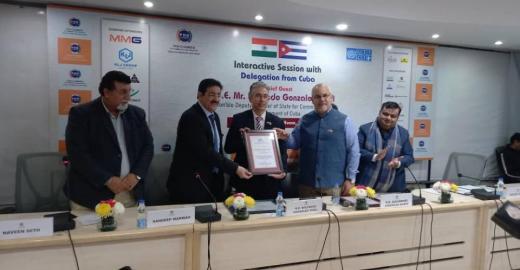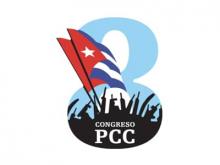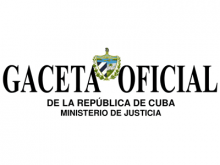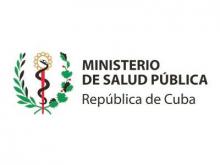
In the legal package, several dimensions for the shipments of correspondence are approved, as well as postal assignments and the prices of national money orders. Picture by: Correos de Cuba
Focusing on improving postal services in Cuba and their stability, as well as on favoring the social and economic growth of the nation, the 30th Postal Services Executive Order (Decree-Law), which sets a coherent and consistent legal framework, will be published on Tuesday on the Ordinary Official Gazette No. 39.
In addition, the legislation also includes the Regulating Decree for Postal Services, and seven resolutions from the Minister of Communications (Mincom).
Wilfredo López Rodríguez, director of Regulations from that institution, told to Granma that one of the main characteristics of this Executive Order is that postal services will be seen as those that are given to legal and natural persons, which entail the reception, classification, transportation and delivery of shipments to their recipients by means of a postal network. Those shipments could be documents or merchandise.
Likewise, the Cuban State is acknowledged as the proprietor of the postal services; the Correos de Cuba Business Group (GECC) is set as the designated operator that provides the Universal Postal Service (UPS), and the existence of other postal operators is approved as well as the regulation of the licenses (permits) for supplementary non-basic services.
Carlos Asencio Valerino, president of the GECC, said to this newspaper that, as part of the regulatory framework, the Universal Postal Service is defined for the first time as the group of basic postal services that the State is compelled to ensure as public services to natural and legal persons inside the national territory, featuring affordable prices without subventions or profiting interests, in a permanent way and with established quality in the provision of those services, which are only offered by that institution.
The following ordinary postal shipments were included:
letters weighing up to 2 kg
postal cards
airgrams
telegrams
shipments for blind people weighing up to 7 kg
printed materials of up to 2kg and books weighing up to 5 kg
smal parcels of up to 2 kg
M sacks (mail bags) weighing up to 20 kg
assignments or postal parcels weighing up to 20 kg
national money orders
distribution of national and provincial newspapers
The Director of Regulations at MINCOM pointed out that, in the new regulations, the duties and rights of the postal operators and users are stated; the procedure for postal issuing was regulated and the dimensions for the shipments of correspondence are approved, as well as postal assignments and the prices of national money orders.
This Executive Order also regulates the customs control over postal shipments and the security requirements that must be met by the country's authorized services operators, such as:
The examination of mail with specialized equipment and techniques.
The monitoring of the mail that shall be transported from the moment it was received until it is given to the transporter.
The definition of a procedural system of attention to postal security incidents.
The strict control over the dispatch of postal shipments.
The availability of the necessary resources for local, national and international transportation of postal shipments with conditions that ensure that they reach their destinations within the established deadlines without losses, plundering or damage done to their contents.
Among other new aspects featured by this Executive Order, we can find the fund for the development of the universal postal service, supported by the amounts of money paid as tribute to the State by postal operators, as well as by the different sources that are authorized by the current legislation.
Regarding that topic, the specialists said that the projects that would be executed based on that fund would focus on modernizing and expanding the postal network, on increasing the levels of efficiency, on improving the quality and accessibility of the basic postal services, and on the complementation of the projects that have been approved by international organizations.
Moreover, this legal standard is expected to be established as part of the development goals and quality indicators, something that had been done already at MINCOM, and which is made official within this legal framework.
Asencio Valerino also explained that the strategic plan for postal services is being regulated as well, prioritizing the mission of the GECC, and at the same time, a relationship is being established with e-Commerce, about which he said that "there's still much to do because we must create links with the existing institutions associated to online sales in the country, and with other international organizations to act as a logistics platform."
COMPLAINTS, COMPENSATIONS AND DELAYS
About that matter, López Rodríguez explained that the new regulatory package encompasses all the postal operators and the terms for complaints and compensation amounts are set, those amounts will be paid to natural and legal persons.
The complaints made by the senders in relation to basic postal services (UPS related) and to non-basic ones (outside from the range of what has been established by the UPS, for example, parcels of up to 30 kg and fast courier services), will be available a day after the admission of the shipment, and they must be presented through the channels defined by each operator.
The Director of Regulations at MINCOM explained that six-month terms were approved to present the complaints related to basic postal services, and two-month terms in the case of non-basic ones, and the payment for compensations must be done by the postal operators within 30 days as of the day that the process concluded.
The amounts paid by postal operators as compensations to legal or natural persons because of losses, breakdowns or pillages of postal shipments, comprise national and international operators.
For example, in the case of ordinary postal assignments (parcels or merchandise) that are processed in national territory, the amount of the compensation would be 200 CUP, plus an aditional 22.50 CUP per kilogram, plus the original fee that was paid; while the international ones would have to pay the same amount if it is an outgoing shipment and 960 if its an incoming one, plus 540 CUP per kilogram, plus the original fee that was paid.
Concerning that aspect, the President of the GECC highlighted that the compensations are paid taking into account the weight of the shipment and not its contents, and the established fees are based on that precept.
Regarding delays, a postal shipment acquires that state once it remains in its destination or origin during 30 days in each place, counting from the day of the first delivery attempt or the notification of its arrival to the receiver or the sender, and which stays in that situation during a maximum amount of 60 days.
On the importance of that Executive Order, the Regulations Director pointed out that: "we had never had in this country such an organized package of legal standards about this subject, which also provides operators with a legal backup and offers protection to users because there's a regulatory framework for them to demand their rights."
The President of the GECC remarked that everything that has to do with postal services is being updated and new actions that were already taking place are being added because they were not registered yet.
Both officials agreed on the fact that with the implementation of this regulatory package, the regulatory framework for postal services is set with the goal of offering stability in the provision of basic and non-basic services to achieve a harmonious legal organization of the postal sector in the country, adapted to the Cuban reality and its future perspectives.























Publicar nuevo comentario